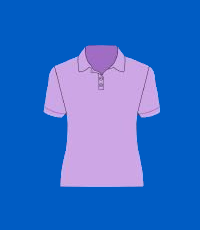Imaging (Radiology) provides a diagnostic, interventional and therapeutic service to the local population and a specialist service for the region. Imaging is core in the prevention, diagnosis and treatment of a wide variety of diseases.
We cover many areas across the hospital, and can also be found in the Cambridge Breast Unit.
Imaging services in the community
We provide imaging services outside of Addenbrooke’s Hospital and this could mean you have a scan at one of our community locations.
Radiation - risks versus benefits
People are often concerned about being exposed to radiation during an x-ray. You have been referred to the imaging department for an x-ray examination / procedure. A specialist in radiology agrees that this is the best examination / procedure to answer the clinical question that has been asked and that the benefit of the examination is greater than the risk. The x-ray involves a dose of ionising radiation, this can be equivalent to a few weeks, months or years (depending on the test) of natural background radiation which we are all exposed to every day. Ionising radiation can cause cell damage that may turn cancerous however the risk of this happening from your examination is considered low. The dose delivered will be kept as low as is practicable.
If you have any questions about your examination / procedure please ask your radiologist / radiographer when you come for your appointment.
Further information
More information about national radiation guidelines is available from the following websites and documents:
Resources
Patient information
To access imaging (radiology) patient information leaflets, please see the CUH Patient information A-Z.
MyChart
Appointment reminder can be sent via patients MyChart. You are also able to get your results of your scan / x-ray via MyChart. However there is a delay of 3 weeks from when the report is complete to when it becomes available on MyChart. This is to allow time for the clinicians to check reports before they are communicated with the patient, in case they have any queries and require further clarification.
Patient feedback
We frequently invite patients to complete an online survey to find out what you think about the treatment and care you have received whilst in our department. This is because your feedback is important in helping us to improve Imaging services. Click here to find out more about how the Trust is acting on feedback or to provide feedback following your visit.
Who's who in imaging
You can recognise our staff by their name badge and uniform. The illustrations found below of our uniforms can help you out when you are in our hospitals.










Where to find us
Please click here to see how you can find your way around the site.
Non-medical referrers (NMR)
All non-medical referrers (NMR) requesting imaging within the imaging directorate must follow our NMR policy. When you refer, you'll be asked to indicate whether you're an NMR on our referral forms.
To become an NMR, you must complete the required training, establish a scope of practice outlining which exams and procedures you can refer for, and register as an NMR on the CUH database.
If you're an NMR and want more information or to start the registration process, please register for access to our GP Portal.
CUH GP Portal registration
Healthcare professionals. Find out how to register for our CUH NHS GP Portal.
After you have signed up, visit the Imaging pages for details.


